Faces of Jingmaishan 2: Roadside Tea Service
Chatting with a roadside tea-selling couple about tea economics and tea tourism
This is Part 2 of my four-part Faces of Jingmaishan series, which are short vignettes of people I met and conversations I had in Jingmaishan, a tea mountain in southern Yunnan, west of Xishuangbanna, close to the border with Myanmar. You can read Part 1 here. This content was originally posted as a twitter thread on 14 March 2024. It has been edited lightly for essay format.
The road up into Jingmaishan is a winding mountain road of poor construction, using flattened cobbled stones instead of asphalt.
You'll pass several small villages on the way up. Each will have local roadside tea vendors.
This roadside stand is just outside of Mangben Village, next to a parking lot and coffee shop with sweeping views of the valley below. At least it would have sweeping views were it not for the dust in the air. It's the dry season here, and it hasn't rained for over two months.
We decided to buy Pu’er tea here as gifts for friends, and asked the vendor if it was possible to split one of her large bags into smaller gift-size bags. She agreed and called her husband to bring some smaller bags. After he arrived, he poured tea and we chatted while she divided the tea.
I asked: "Why are the tea such different prices in each year? Is there a big difference between the different years of tea?"
"The weather varies a lot each year, and it affects the flavor of the tea. But the tea is expensive mainly because of the costs of the business license and production equipment."
"So why is the bag we bought priced so cheaply from the other products you sell? Is it lower quality tea?"
"No...it's our tea! We sell different brands of commercial tea here, but we also sell our own tea from our own land. We don't have a license or factory, so the costs are lower."
"Oh really. So those fancy round tea packages are from a tea brand company, but the big bag you are using now to divide into small gift bags is your own tea?"
"That's right"
"Is this common?"
"Yes, everyone here has their own tea, from their own land."
"Why don't you get a brand?"
"It's expensive. Look."
He grabs a round commercial package of tea and points at the label.
"See, it has a label, a stamp to ensure this is Jingmaishan tea. This certification costs at least 20,000 RMB. And if you want to have a tea production factory, you need at least 300,000 RMB.”
"We are regular people, we can't afford this, so we just sell our tea with no brand. But if you like it, you can scan our QR code on the package and we can mail you our tea."
"So the local government is concerned about protecting the Jingmaishan tea brand?"
"Yes of course. They will even have police officers at the entrance to make sure no one brings in tea from outside."
"Oh, that's what that was about. They opened my trunk, but I didn't know why."
"They are making sure you don't bring in outside tea to sell as Jingmaishan tea. They don't check we locals for tea of course. Why would we bring in tea from outside? But they check us for other things. They want to make sure we don't bring in any fertilizers or pesticides, to ensure the quality of the tea."
"So basically everyone living here is a local?"
"No, there are some outsiders too. Like me...I'm not from Jingmaishan. But my wife is a local."
"That's right, when she called you on the phone, I noticed she used Mandarin, not the local language. Where are you from?"
"I'm from Qujing, in Yunnan"
"How did you come here?"
"I came here to work originally."
"So you met your wife, then you never left?"
"That's right, haha."
"Do you know the local language?"
"I can understand it now, but I can't speak it. At first I couldn't understand it at all". [Author note: This is a Dai minority village. Jingmaishan has both Dai and Blang ethnic minorities]
"Were the local people welcoming to outsiders?"
"Yes, the local people are welcoming. But at first I don't understand the language, so I wouldn’t have known if they are talking about me. Maybe they were cursing me, I wouldn't know!"
His wife laughs. "Maybe they wanted to beat you up!"
"Well..."I added, "Maybe they were saying good things about you and you didn't know!"
"That's right," he said. At that time, they could curse me, threaten to beat me up, or praise me, and I wouldn't know. But now I can understand them."
"So you came here and became a tea farmer. Is it a good business?"
"It's okay. Not bad."
"Does Jingmaishan have a lot of tourists to buy tea? As far as I’ve seen, it’s not been very busy the last few days...considering it's the weekend."
"Right now is normal tourist flow...just a little busy. We are only very busy for holidays...Labor Day, National Holiday, Spring Festival. Last month for Spring Festival...wow it was crazy. This whole parking lot was full, and the sides of the road full of parked cars too. A bus of tourists from Shenzhen stopped here. They pushed to negotiate a big discount....The problem is once you agree to a discount, they ALL want it. Then they start to just grab the bags of tea, scan the QR code, and send money to your account. You can't track the sales at all...they are grabbing all the tea and paying without even asking you!
...and then their tour guide wants their cut. They will ask you for 10%, 20% of the revenue. They will say: 'hey I brought you so many customers, you should pay me'. You can't refuse to give them this, because then next time they will not stop the bus at your location...they will go to a different vendor who is willing to give them a cut of the money. We are helpless in this way."
"Also, another problem is those livestreamers. They will come here while broadcasting live and and negotiate very hard while on air for a low price, and then announce to all their viewers that they can get the same price also. Like 9.9 RMB including shipping. That's so bad. If we see a livestreamer, we have to stop them!"
"Would you do your own livestream to sell tea?" I asked.
"Well, the problem is the people who watch livestreams don't really buy tea. And the people who really understand tea and love to drink tea are older, and so they don't watch livestreams. So I don't think it's worth it.”
"Is there any other way to sell tea?"
"Some big companies sign contracts with tea farmers to purchase their tea."
"Oh, like Bolian Group? (柏联集团) I saw their signs down the mountain, publicizing how many famers in each area are growing tea for them, how many mu of fields they have, and so on..."
"Yes, exactly like Bolian Group. They also built the mountain road."
As a sidenote: Bolian is a large privately-owned cultural tourism/hotel development company. They also developed the Heshun Ancient Town in Tengchong, Yunnan, which I visited last year. Their Pu'er tea brand is quite expensive.
According to the Bolian Group website, they've been active in Jingmaishan since 2006. To gain this kind of exclusive access from the local government to buy Jingmaishan tea and establish their Pu'er tea brand, they probably had to promise all kinds of additional infrastructure investments (like building this crappy road).
"Your tea is ready!" his wife announces. "Do you like the tea you're drinking right now? It's our white tea. Here, I'll give you some extra. Remember, if you like it, just scan the code to buy more".
I take a final picture, she smiles and poses for the camera (her husband is oblivious I’m taking a photo) and then we're on our way.
That’s it for Part 2 of 4 of the Faces of Jingmaishan series, sharing my small everyday conversations with regular people living in the Jingmaishan region of southern Yunnan. Next time, a local grandma makes me warm milk tea over an open charcoal fire.



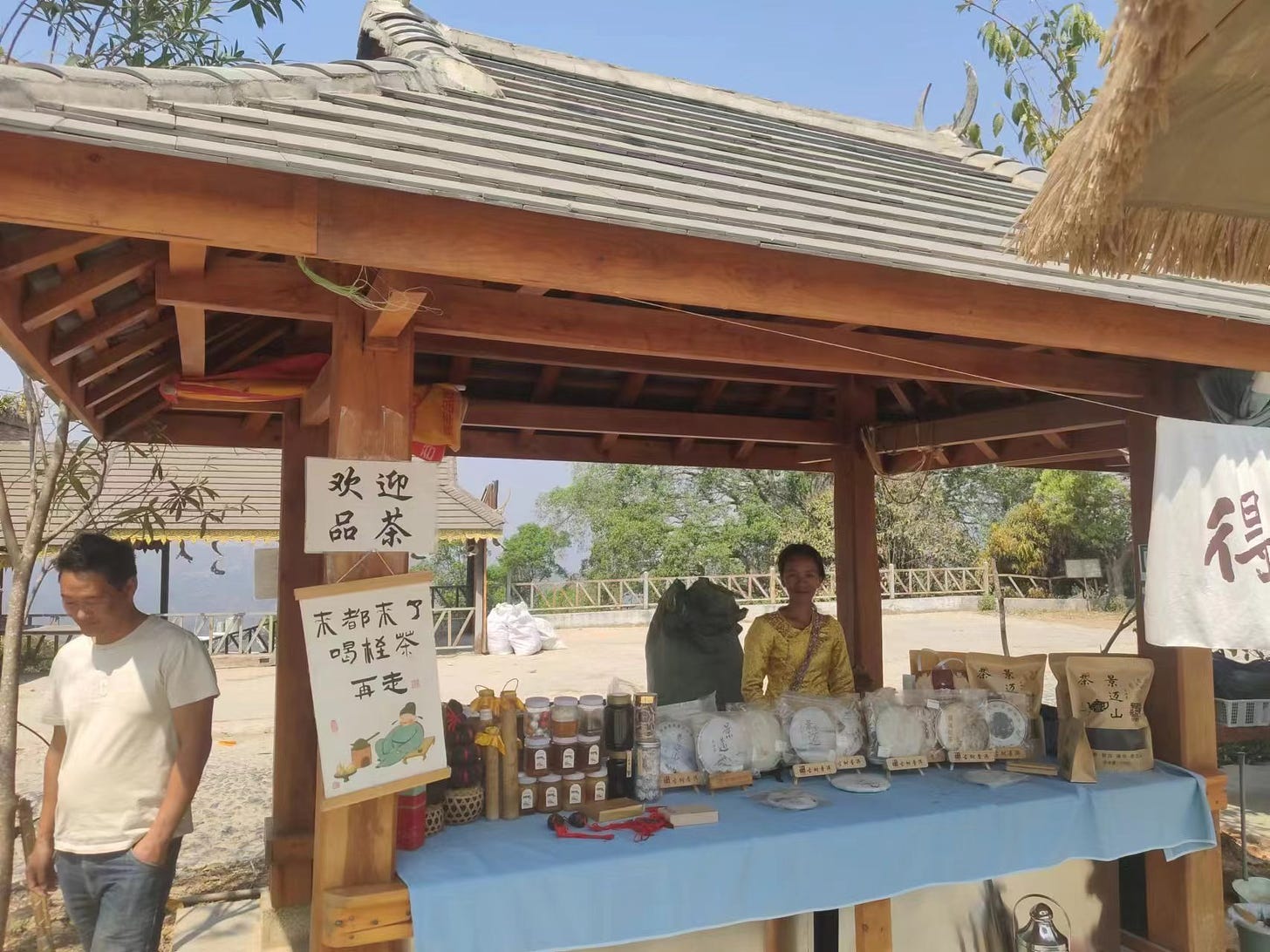
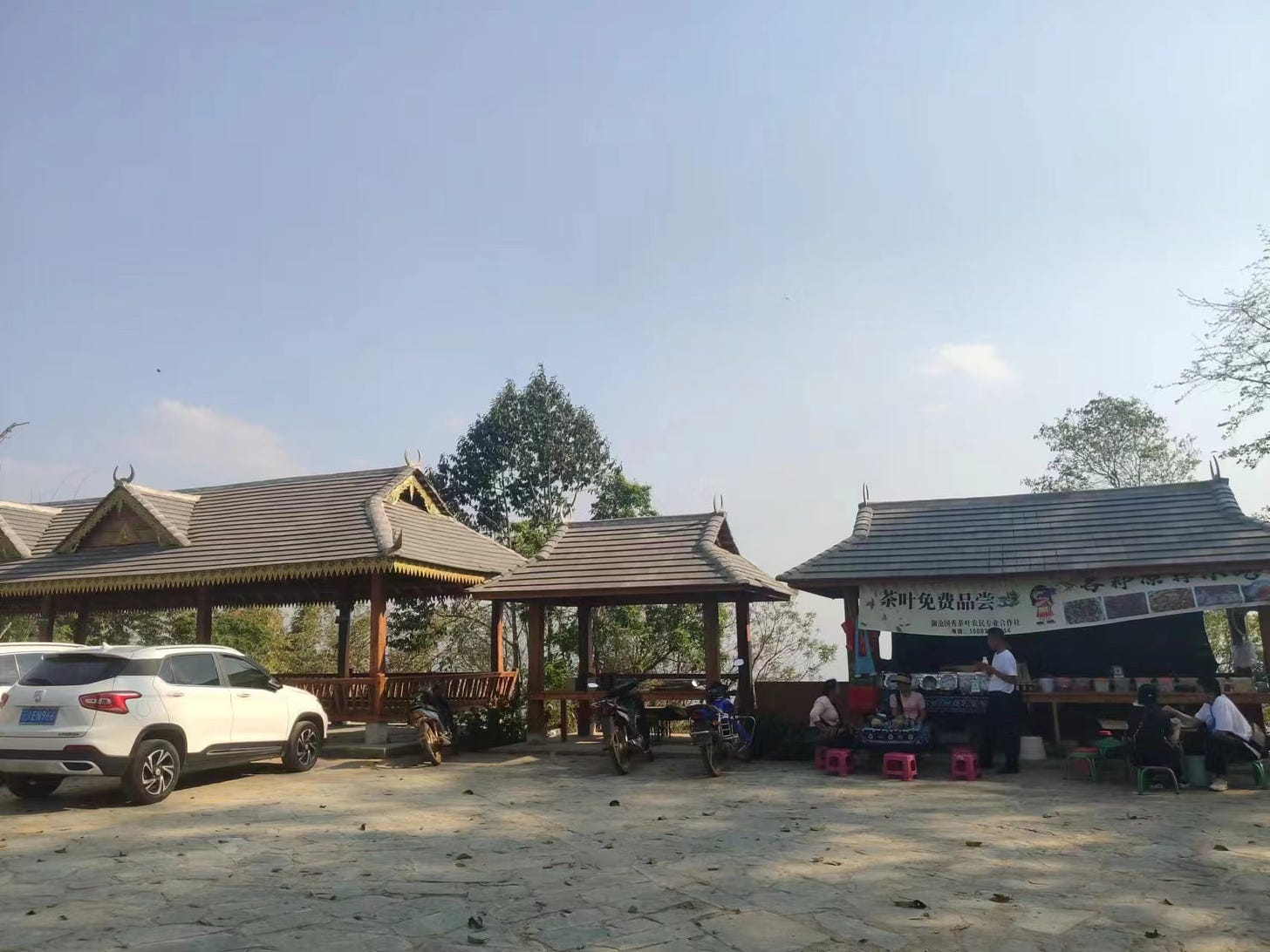
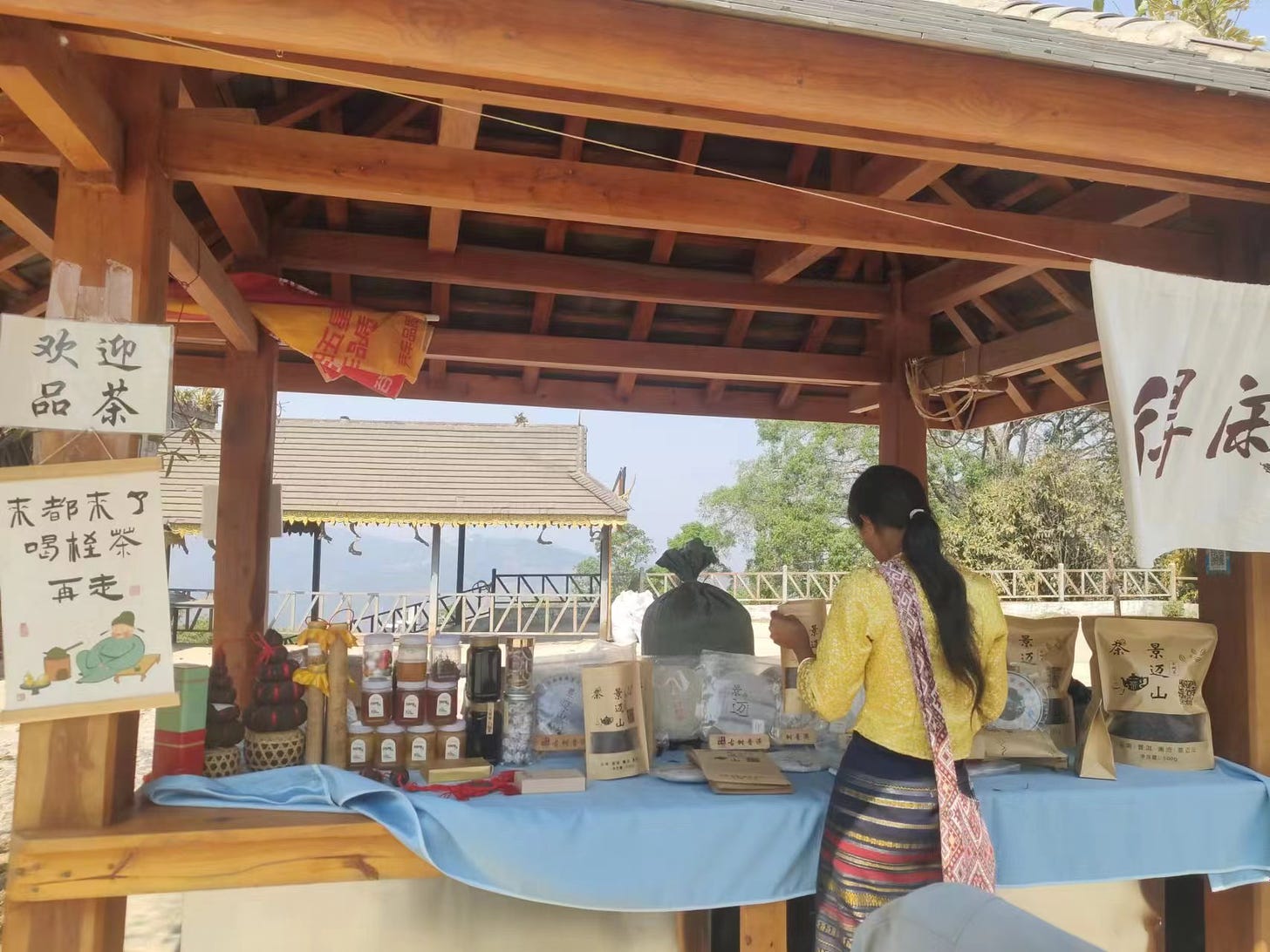
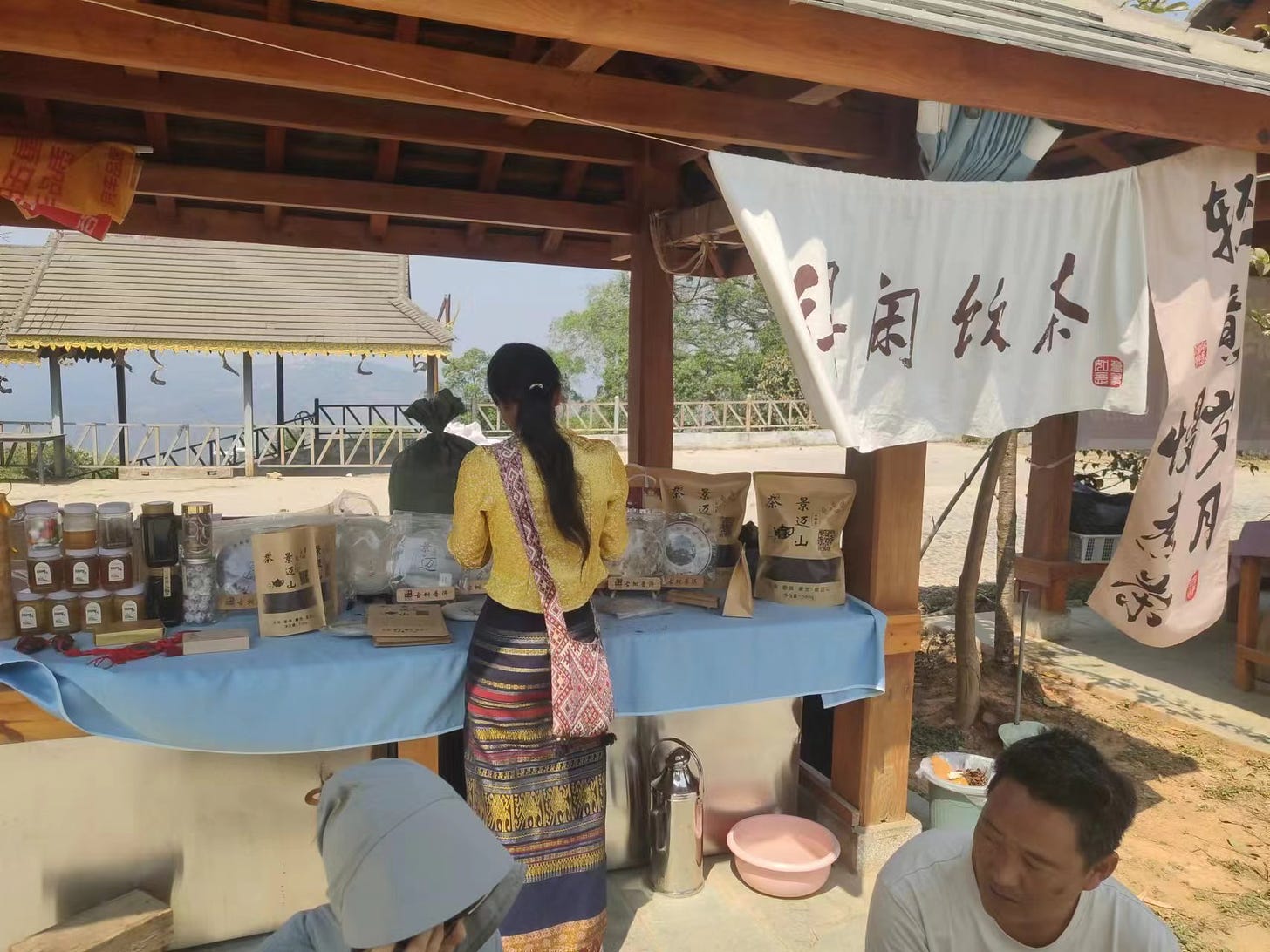
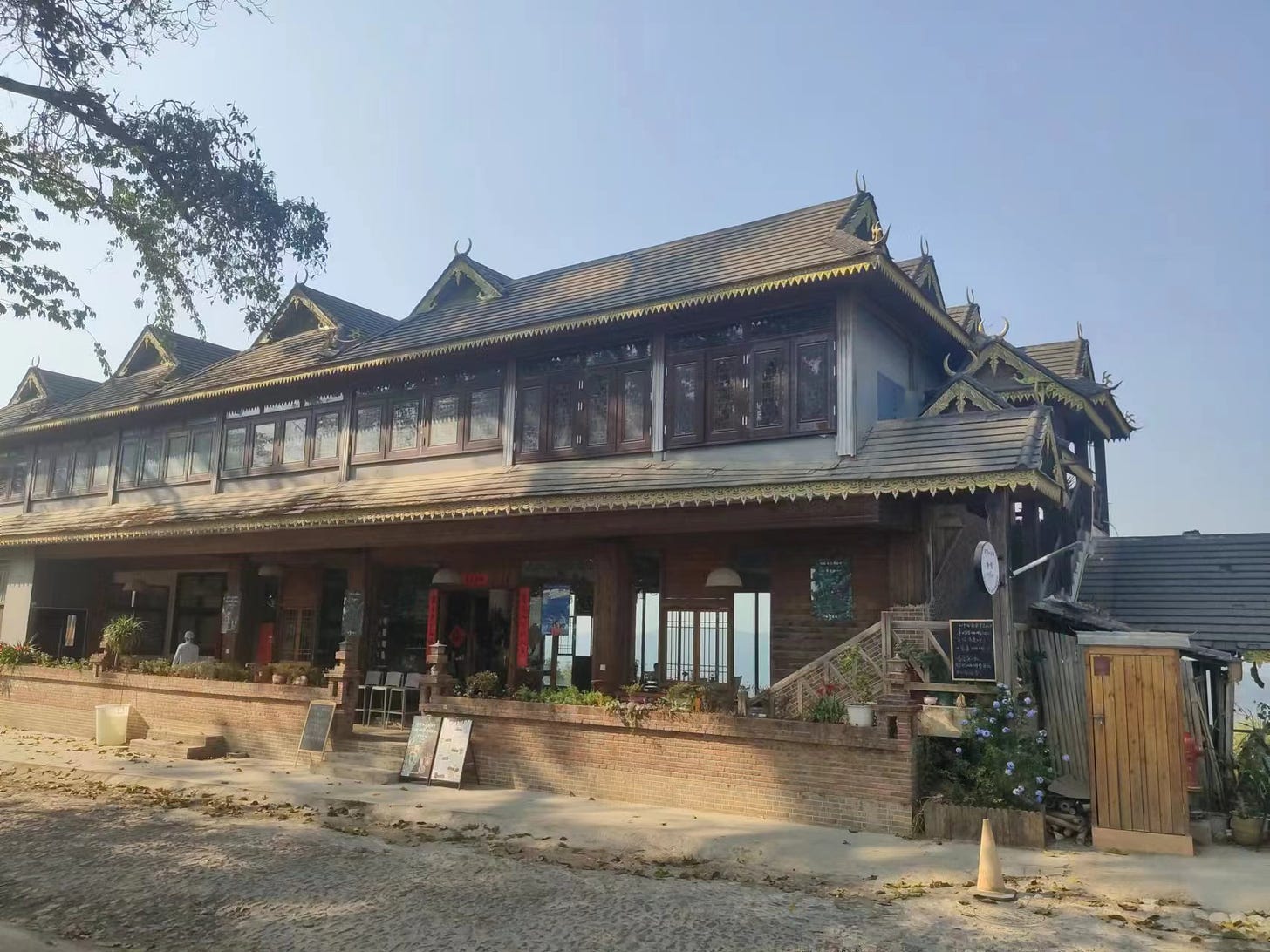
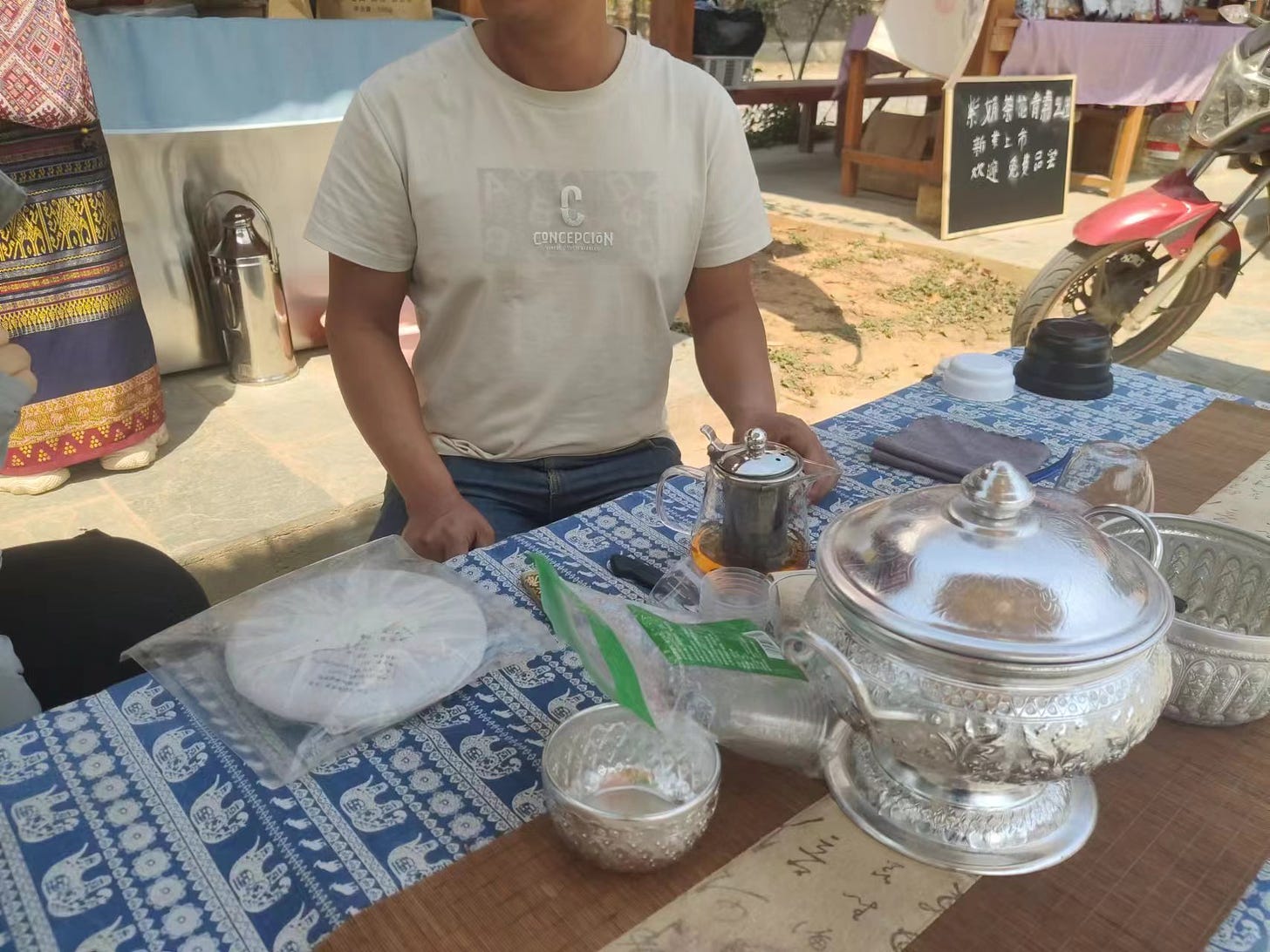
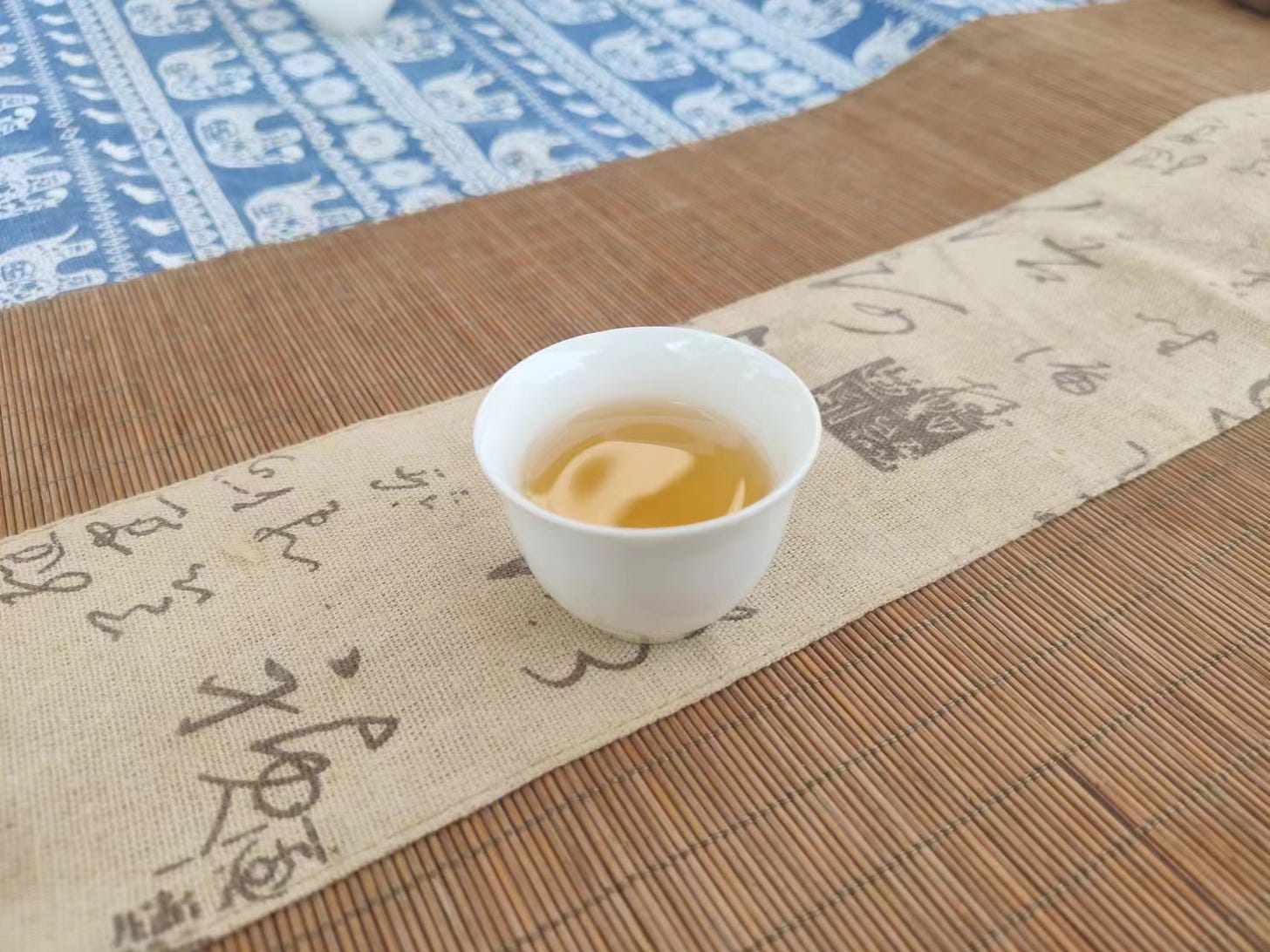
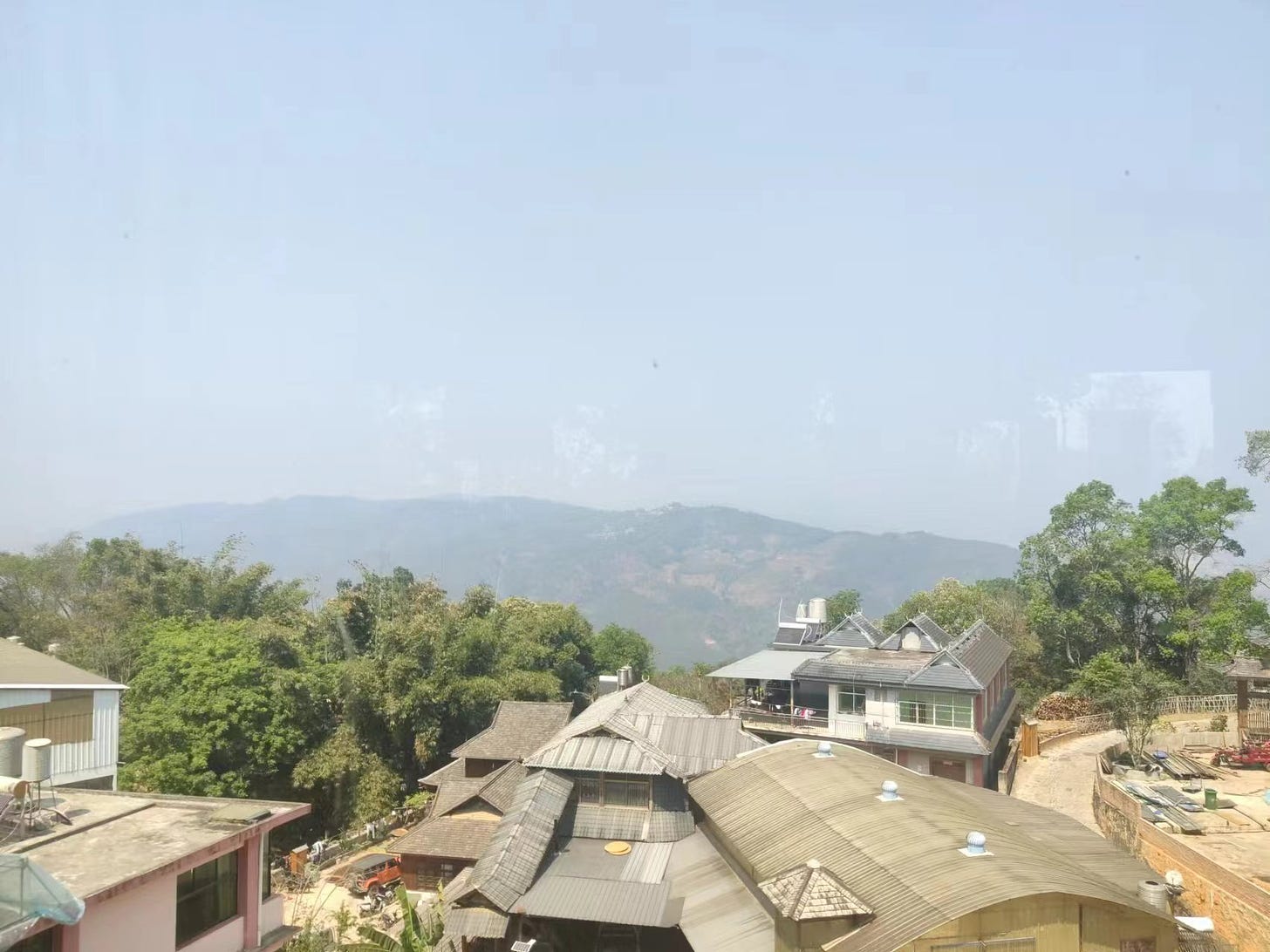
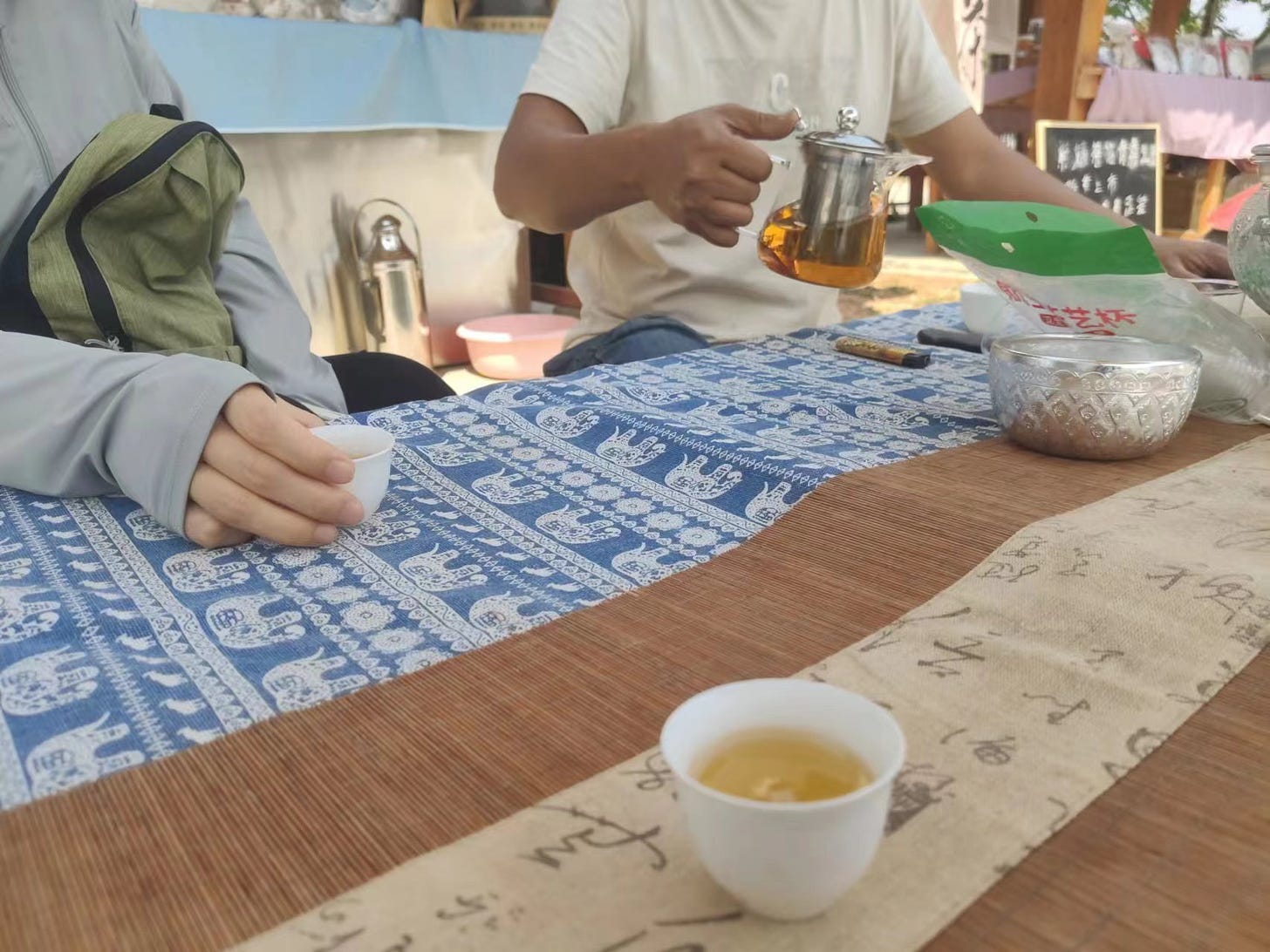

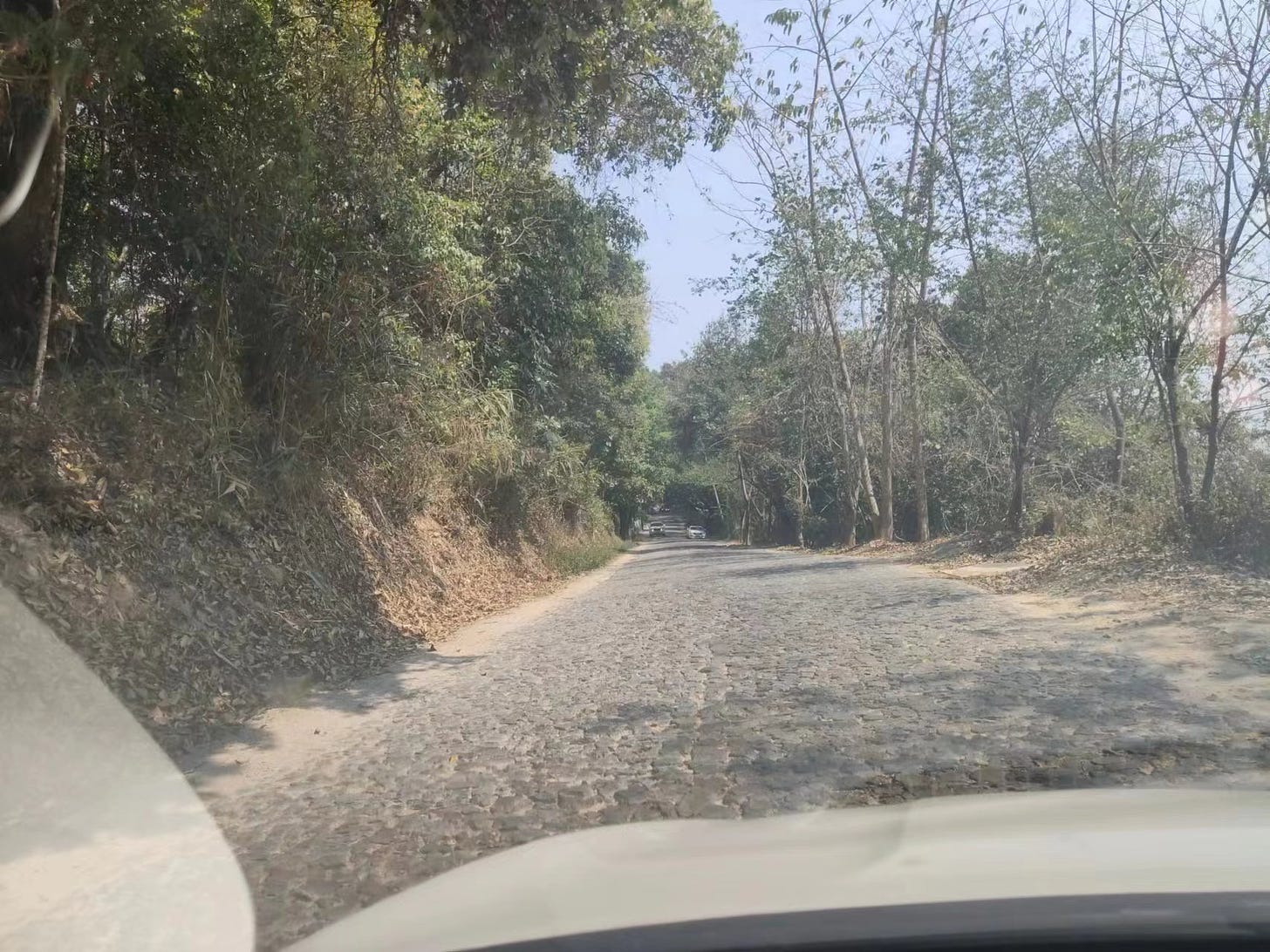
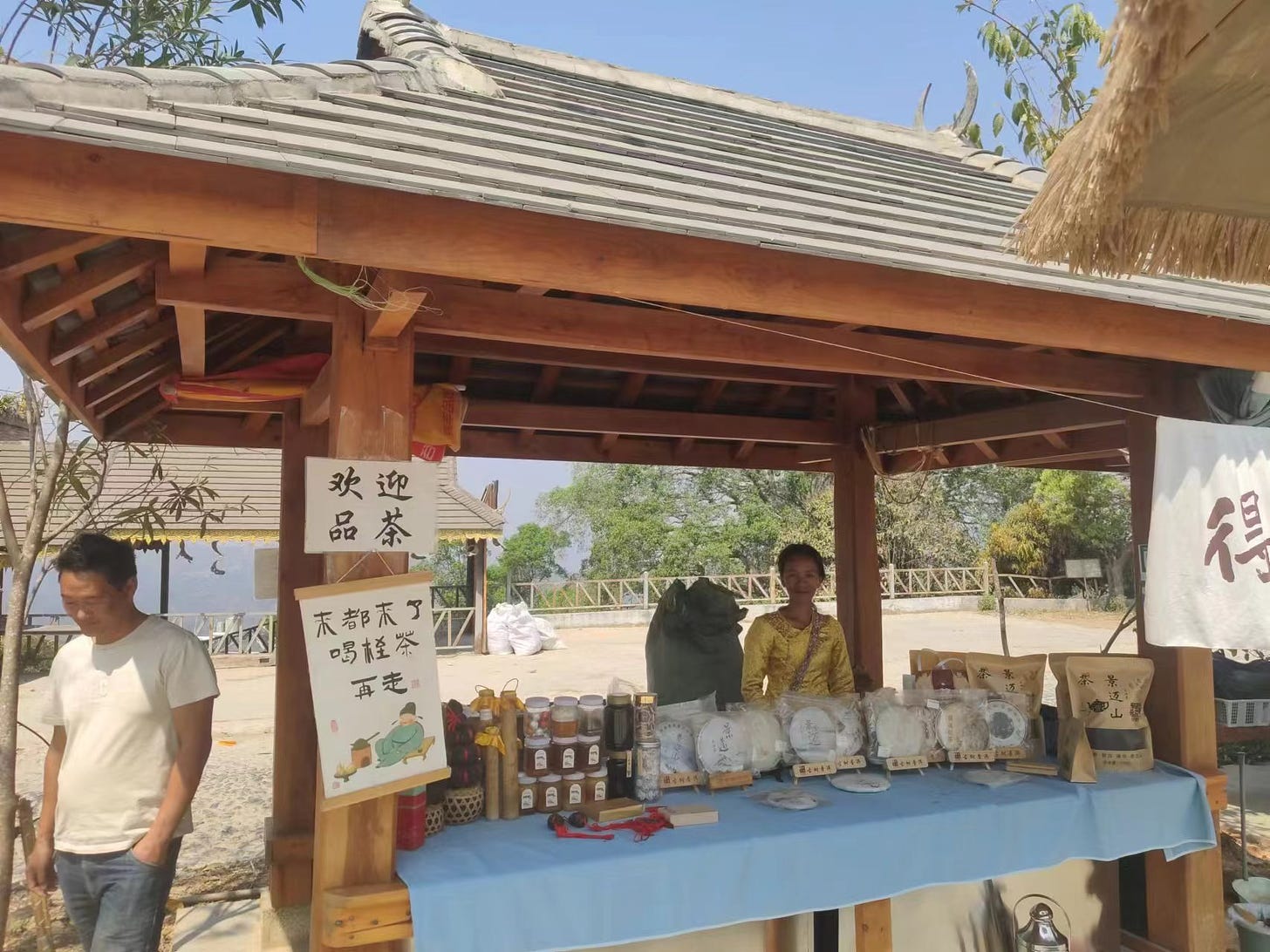
Great piece